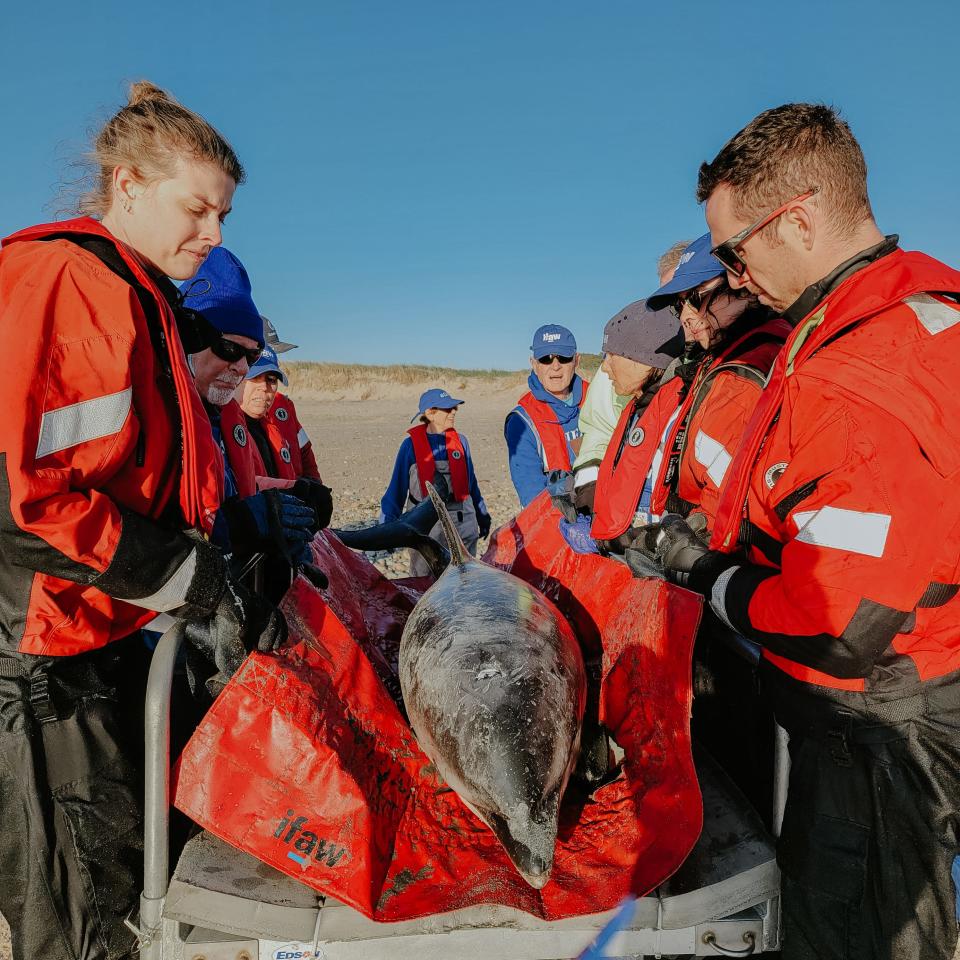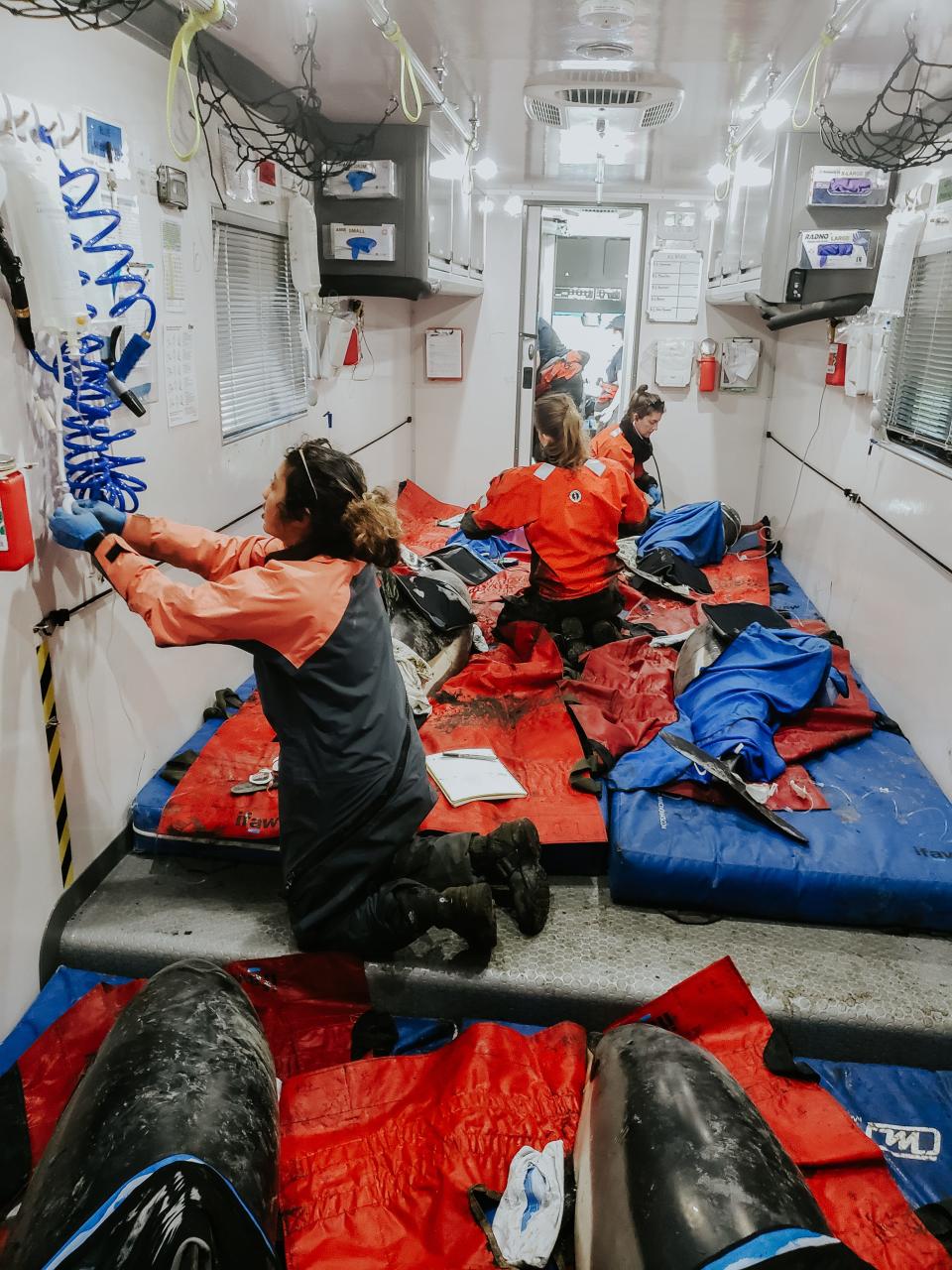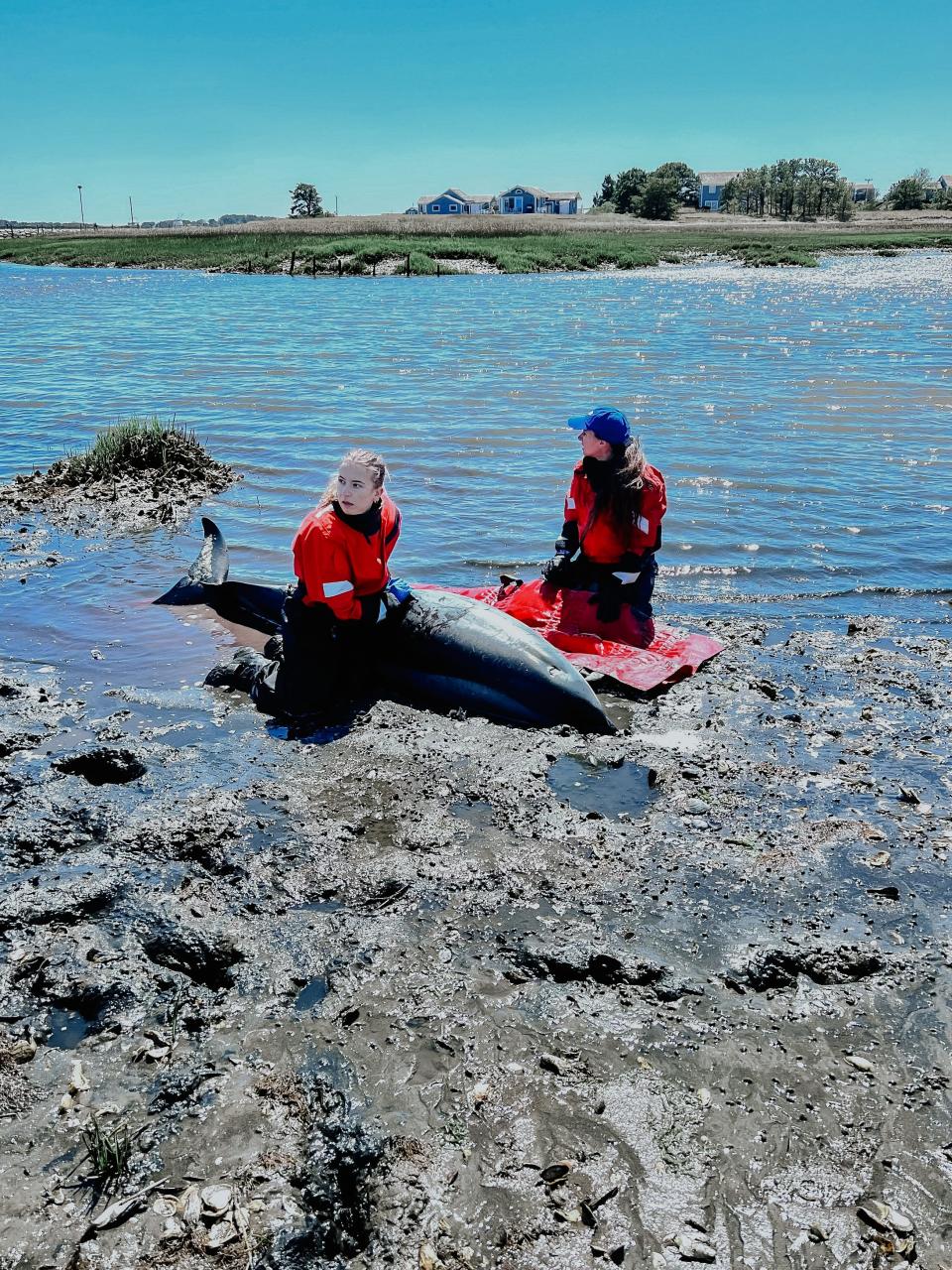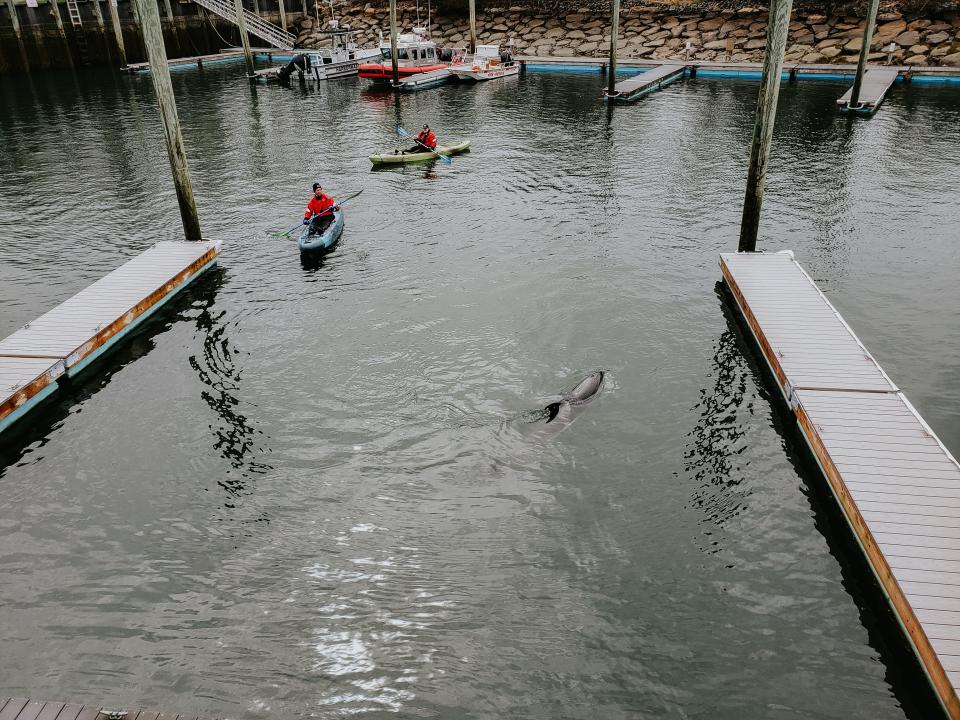Nine dolphins rescued on Cape over two days. The peninsula is a 'hot spot' for strandings.
Dolphins swimming in the bay were keeping members of the International Fund for Animal Welfare's Cape Cod marine mammal rescue team and other helpers on their toes this week.
For two days, dolphins swam in shallow waters or got stranded in three places - Provincetown, Wellfleet and Barnstable. Rescuers took to kayaks and boats and even broke out the mobile dolphin rescue vehicle, coaxing the mammals into deeper waters or physically taking them out of the water to bring them to safer places, according to IFAW.
It began in the early afternoon on May 1 as nine Atlantic white-sided dolphins were reported swimming in Wellfleet Harbor. As if on cue, one of the animals got stranded in Duck Creek soon after rescuers arrived to help guide them to deeper waters. Before the afternoon was over, seven others were also stranded. The ninth dolphin swam off on its own.
Dolphins stranded on Cape before Stranded bottlenose dolphin, rare to Cape Cod, was later released off Provincetown

The majority of the visiting dolphins were young - essentially teenagers.
All eight of the stranded dolphins — one female and seven males — "were extracted, full health assessments were conducted, treatment was provided and all were able to be released," the organization reported.
The group included what the organization assessed as two likely adults and six likely "sub-adults" - essentially dolphin teenagers.
Because of high winds, the dolphins were released at Duck Harbor in Wellfleet, which the rescue team felt was the location with the safest conditions.

Rescued dolphins returned to shallow water in Provincetown and Barnstable a day later.
According to the rescuers, one of the dolphins rescued on May 1 returned to shallow waters on May 2, stranding in Provincetown and requiring the use of kayaks to herd it to an area where the team could help it. This dolphin was again assessed and treated, given its own temporary satellite tag and then transported to Herring Cove.
Almost simultaneously, another of the dolphins rescued on May 1 was observed in Barnstable Harbor between the boat slips. Again, rescuers entered the water with kayaks and vessel support from Millway Marina to assist.
At the same time, a different dolphin — possibly the ninth of the group from May 1 that had swum away, a young female — again brought rescuers to Wellfleet, near the Wellfleet Pier. She, too, was herded using kayaks, and taken out of the water for assessment.
"The two rescue teams came together, and the two remaining dolphins rode together in our custom-built mobile dolphin rescue vehicle to Herring Cove Beach in Provincetown," the team reported.
Over the two days, three dolphins were given temporary satellite tags, and were all reported to be safely swimming well offshore as of Wednesday evening.

Cape Cod is a worldwide hot spot for dolphin strandings.
The region turns out to be somewhat of a confusing place for dolphins. IFAW stranding coordinator Misty Niemeyer said Cape Cod is a "hot spot" for dolphin strandings, particularly mass strandings.
"This area gets the most frequent mass stranding events of anywhere in the world," she said, noting that about 25% of the live dolphins in the United States strand right here on Cape Cod.
Dolphins may become stranded for many reasons, from illness and injuries, to entanglements, vessel strikes and ocean noise.
"But the mass stranding events here on Cape Cod, particularly in Cape Cod Bay, are generally suspected to be caused due to the geography of the Cape, the extreme tidal changes, (and) extreme weather system," Niemeyer said, "and they may get disoriented when navigating using echolocation in particular areas."
Historically, the busiest stranding season has been the winter into spring, January through April. But the rescuers have observed changes to this, she noted.
"In recent years as strandings have increased, the seasonality has become less predictable, and mass strandings have been occurring year around," she said.

What should you do if you see an animal in need of assistance?
Anyone who observes any marine animals in need of assistance should alert rescuers.
"Please keep back a safe distance for your safety and the safety of the animal," Niemeyer said.
For Cape Cod and southeastern Massachusetts shores, you can call IFAW's hotline for all reports of live or dead stranded marine mammals, including dolphins, whales, porpoises and seals at 508-743-9548.
You can also visit ifaw.org/strandings for additional reporting information.
This week's rescues were undertaken with help from Whale & Dolphin Conservation, AmeriCorps Cape Cod, the town of Barnstable, Millway Marina (vessel support), Provincetown Aquasports (use of their kayaks), Cape Cod National Seashore, the town of Provincetown and many IFAW volunteers.
Heather McCarron writes about climate change, environment, energy, science and the natural world. Reach her at hmccarron@capecodonline.com, or follow her on Twitter @HMcCarron_CCT.
Thanks to our subscribers, who help make this coverage possible. If you are not a subscriber, please consider supporting quality local journalism with a Cape Cod Times subscription. Here are our subscription plans.
This article originally appeared on Cape Cod Times: Dolphins rescued in Barnstable, Provincetown and Wellfleet

 money
money 